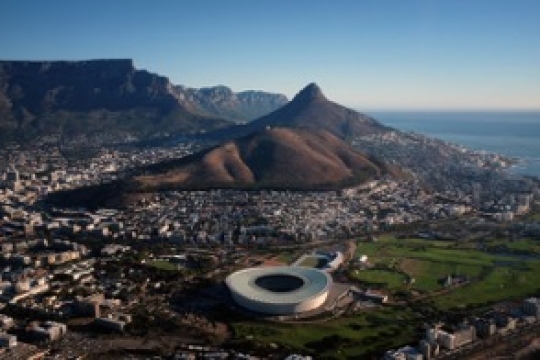The people of Cape Town are being given a chance to tell city managers just how much they value the natural green spaces, manicured parks, sports fields, and street trees in their neighbourhoods. And what they say may help park authorities decide how to prioritise their spending, at a time when there is growing pressure to develop open green spaces for housing or business opportunities.
These green open spaces are often seen as a financial burden to the city. But resource economists at the University of Cape Town (UCT) are conducting a study which they anticipate will show otherwise.
‘We already know from other studies, that keeping green spaces within cities healthy and intact can have many benefits to communities and the city,’ says Dr Jane Turpie with UCT’s Environmental Policy Research Unit (EPRU).
These natural assets can push up property prices in surrounding neighbourhoods, and draw in tourists. They also have an ‘amenity’ value, in that they bring recreational and aesthetic benefits to communities.
‘Looking at house price data in Cape Town, and then getting information on the behaviour and preferences of people from different communities across the socio-economic spectrum, we hope to be able to show city managers just how valuable such spaces are,’ explains Turpie.
The EPRU team has recently completed a survey to gauge how Capetonians use the natural and semi-natural areas in and around their city, and the sorts of choices they would make if given the option. In it, researchers asked a series of questions of 637 people from across the wealth divide, including people from suburbs with private gardens and swimming pools, through to people from informal settlements. The results of the survey are still to be analysed in detail.
‘We predict that wealthy people don't have the same demand for public green spaces, because they have their own private green space in the form of gardens. We expect that middle-income communities’ demand for public greens space should be highest. And we anticipate that the threat of crime, especially in poor neighbourhoods, is a major factor that limits the potential amenity value of green open space areas in places.’
This research will also draw on the methods of a study which Turpie conducted in eThekwini, KwaZulu Natal. Looking at the value of properties in areas surrounding natural open spaces, they found that these areas increased the value of property in Durban by over R18 billion. This provides a significant boost for municipal income from rates which are linked to property value.
Researchers expect to see a similar trend reflect in the Cape Town property values when they complete the full study in the new year.
Turpie says the final EPRU findings should be ready for the City of Cape Town by early 2017, and should help inform how it manages its parks.
‘There is actually an abundance of small parks in poorer neighbourhoods around Cape Town, but it is a challenge to maintain them. The city is thinking of selling off many of these parks, and rather having fewer, larger ‘smart parks’ that are designed for multiple uses and possibly even having some businesses like coffee shops associated with them,’ says Turpie. ‘This will create a space that is alive, used and safe, and could add tremendous value.’
